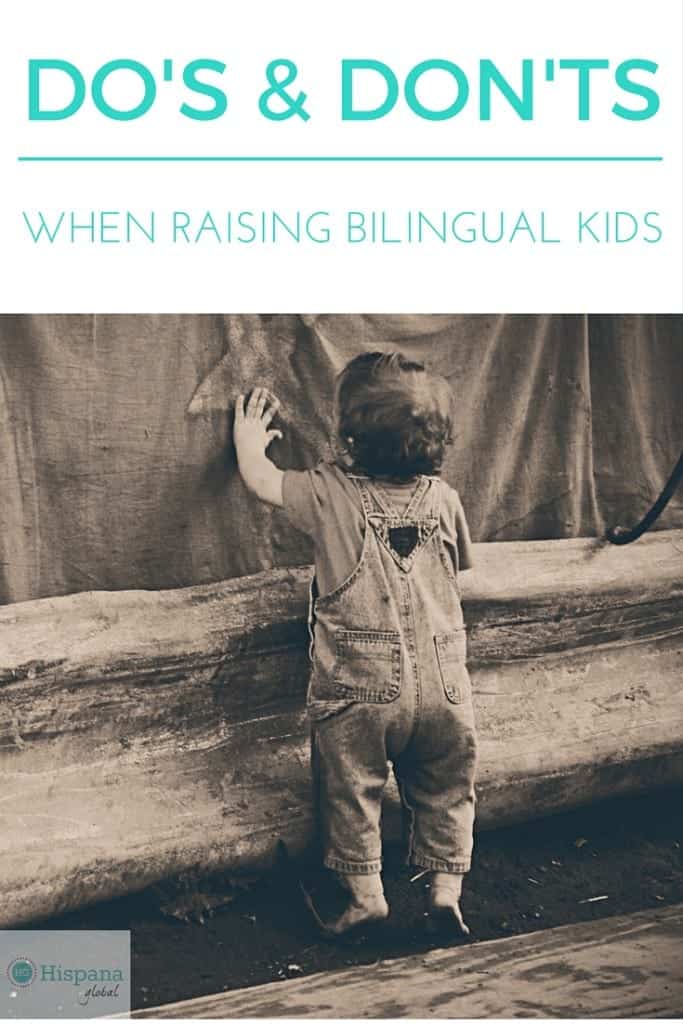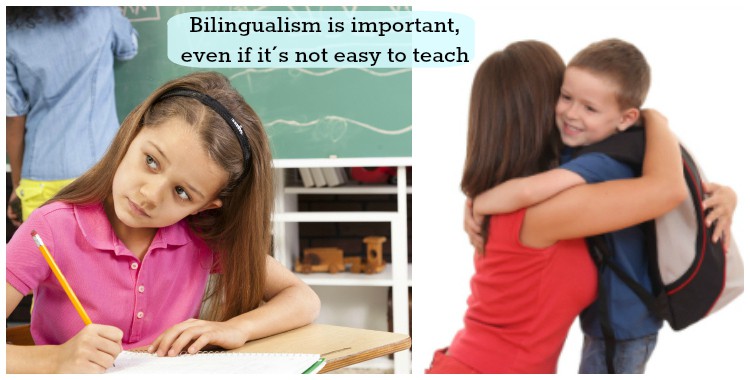3 Mistakes To Avoid If You Want To Raise A Bilingual Child
 More and more research supports the benefits of teaching more than one language to children. Not only do bilingual children seem to be better when paying attention to important information and ignoring the less important, but experts have found them better at multitasking as well. The benefits don’t stop during childhood; being truly bilingual might forestall the symptoms of Alzheimer’s disease.
More and more research supports the benefits of teaching more than one language to children. Not only do bilingual children seem to be better when paying attention to important information and ignoring the less important, but experts have found them better at multitasking as well. The benefits don’t stop during childhood; being truly bilingual might forestall the symptoms of Alzheimer’s disease.
READ ALSO: Why teaching your kids a second language is priceless
As a Latina mom, having my children speak both English and Spanish is extremely important. It not only provides them with an advantage, but it is also a way of building a bond with my culture and the family that still lives in South America. It’s a constant challenge, especially as they grow older and show a clear preference toward the language they use at school, with their friends and when watching TV.
However, it’s a battle worth fighting. I feel strongly about this because I was raised as a bilingual Latina.
 Do’s and Don’ts when raising a bilingual child
Do’s and Don’ts when raising a bilingual child
If you want to raise your kids to be bilingual, experts have different tips. As a mom, I want to share how to avoid the three most common mistakes when trying to get children to master two languages.
- Do not delay teaching the second language. Many parents assume incorrectly that they should wait to teach another language, but experts agree that the earlier, the better. Do begin even before your child speaks.
- Don’t assume teaching your child a language other than English before he/she starts school, will affect him negatively. Children quickly learn how to communicate in another language outside of the home. Just make sure to teach your child key words in English.
- When your child asks a question in English, do not continue the conversation in that language. This is one of the most common mistakes. Our brain almost automatically will reply to the question in the language it was asked. If you want to insist your child learns Spanish, you need to keep the conversation going in español or else he/she will get used to being able to get away with speaking English with you. Do rephrase the sentence in Spanish or the desired language.
More tips to raise bilingual kids
Keep in mind that consistency is key. If you establish ground rules such as which language will be used at home, make sure everybody in your family knows and enforce it. Even if you’re tired. Even if your children insist they don’t like to speak Spanish (or French, or Italian, or Basque).
The effort will pay off sooner or later, but as with most things concerning our children, it will take a lot of patience and persistence on your part to reach the point in which your kids accept that learning more than one language is non-negotiable in your family. As they say in Spanish: ¡Querer es poder! (When there’s a will, there’s a way!)
Read also:
- Being Bilingual Does Not Make Me Less American
- Why Teaching Your Kids To Be Bilingual Is Priceless
- Proud to be a Bilingual Latina

 Do’s and Don’ts when raising a bilingual child
Do’s and Don’ts when raising a bilingual child





